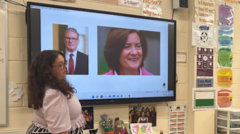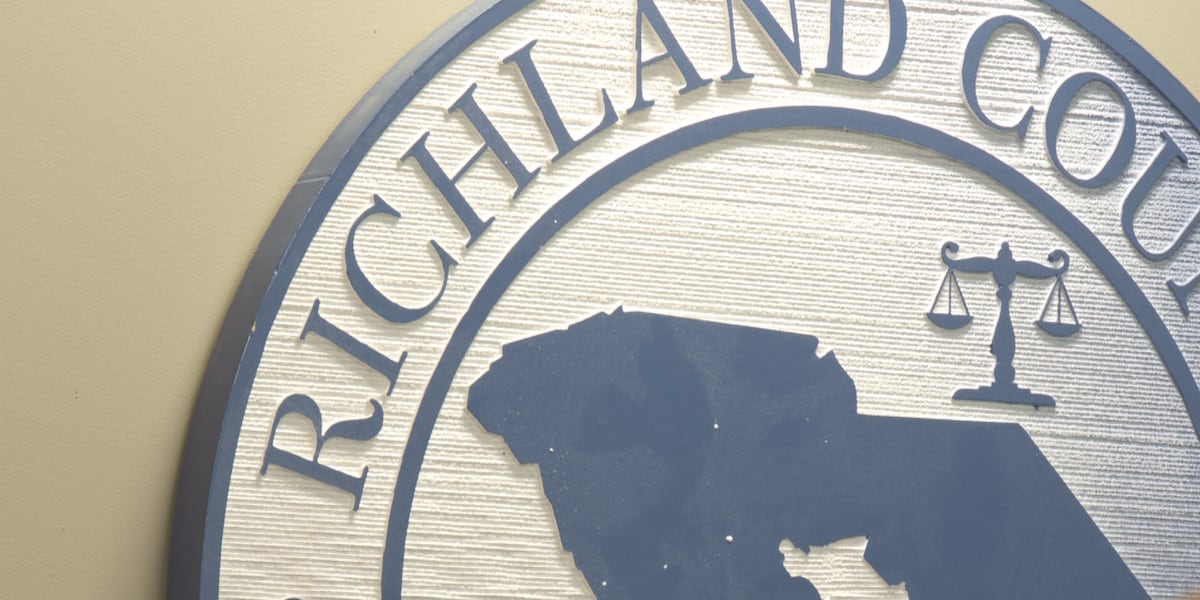Who Is the Mysterious Lady Pupils Claim They’ve Never Met?

Understanding the Political Engagement Gap Among Welsh Youth
The recent findings regarding the political awareness of secondary school pupils in Wales have sparked a significant conversation about civic education and the role of politics in young people's lives. With only 8% of respondents identifying the First Minister Eluned Morgan and fewer than half recognizing Prime Minister Keir Starmer, there is a clear indication that a political engagement gap exists. As the Children's Commissioner for Wales emphasizes the need for educational reform, the challenge lies in bridging this divide before the next Senedd elections. This article examines the current state of political awareness among youth, the implications for democracy, and the necessary steps to foster a more politically engaged generation.
The Current Landscape of Political Awareness in Wales
The stark statistics revealed from the survey illustrate a concerning trend in political awareness among Welsh teenagers. When pupils at Birchgrove Comprehensive in Swansea were shown photographs of prominent political figures, the responses were telling. Comments from students like Thomas, who remarked, "I've never seen that lady in my life," highlight not only a lack of recognition but also a broader disinterest in local governance. This is compounded by Jackson's observation that many of his peers are more attuned to English politics, viewing it as more relevant compared to Welsh political affairs.
The Impact of Social Media on Political Knowledge
Jackson's reliance on platforms like TikTok and Instagram for news reflects a generational shift in how information is consumed. The decline of traditional media, such as newspapers, is evident among younger demographics. Lottie’s concern about the lack of knowledge surrounding Welsh political figures is echoed by many educators, who recognize that if young people are not familiar with their leaders, their likelihood of participating in elections diminishes.
The Importance of Civic Education
Carol Taylor, a teacher at Birchgrove Comprehensive, advocates for enhanced political education. She acknowledges that many students come from households where political participation is not prioritized. This lack of engagement at home leaves students ill-prepared for upcoming elections. Taylor emphasizes that within two years, these students will be eligible to vote in council elections, yet many remain unaware of the electoral process and its significance.
The Role of Educational Institutions in Fostering Political Awareness
The responsibility for educating young people about politics does not solely lie with parents; schools play a crucial role in this process. As highlighted by the Children's Commissioner Rocio Cifuentes, the stigma surrounding political discussions can hinder effective education. By incorporating politics into the curriculum, schools can demystify governance and encourage students to engage with current events critically.
Strategies for Enhancing Political Engagement in Schools
- Curriculum Integration: Integrate political education into existing subjects, encouraging discussions about local governance, current events, and the electoral process.
- Engagement with Local Leaders: Organize sessions where students can interact with local politicians, fostering a sense of connection to their representatives.
- Utilizing Digital Media: Leverage social media platforms to disseminate information about politics in an engaging manner that resonates with younger audiences.
- Encouraging Critical Thinking: Teach students to analyze news sources critically, helping them differentiate between credible information and misinformation.
The Role of Political Parties and Media in Engaging Youth
Political parties also have a significant role in engaging young voters. With the next Senedd election on the horizon, there is a pressing need for parties to connect with the youth demographic. Richard Wyn Jones from The Wales Governance Centre notes that previous efforts were hindered by the COVID-19 pandemic, which disrupted the learning process about civic responsibilities. As political parties strategize their outreach, they must prioritize engaging with young people to foster a sense of ownership over their democratic rights.
The Media's Responsibility in Political Education
The media's role in shaping political awareness cannot be overlooked. As noted in the survey, there is a lack of Wales-specific news programs that cater to younger audiences, akin to Newsround for UK children. Developing engaging, age-appropriate content that informs young people about Welsh politics is essential. By providing accessible information, the media can help bridge the gap in political knowledge among youth.
Addressing the Political Engagement Gap Before the Next Election
Looking ahead to upcoming elections, there is a critical need to address the political engagement gap among Welsh youth. The challenge lies not only in educating students about their rights and responsibilities as voters but also in instilling a sense of civic pride and engagement. The statistics from the Wales Governance Centre reveal that only 28% of 16 and 17-year-olds discussed voting in the lead-up to the last election, indicating a pressing need for action.
Creating a Culture of Political Engagement
Building a culture of political engagement among young people involves collaborative efforts from educators, parents, politicians, and the media. By fostering discussions about politics in schools and homes, young people can begin to understand the impact of their voices. Initiatives such as mock elections, debates, and discussions about current events can serve as platforms for students to explore their views and learn the importance of participation.
Conclusion: The Path Forward
The disengagement of young people from politics is a multi-faceted issue that requires comprehensive strategies to address. As the next Senedd election approaches, it is essential for all stakeholders to prioritize civic education, ensuring that young voters are informed and engaged. Only by cultivating an interest in politics can we empower the next generation to participate actively in shaping their communities and futures.
How can we ensure that the voices of young Welsh voters are heard and valued in the upcoming elections? #YouthEngagement #CivicEducation #WelshPolitics
FAQs
What is the current level of political awareness among Welsh youth?
The current level of political awareness is low, with only 8% of secondary school students recognizing the First Minister and fewer than half identifying the Prime Minister.
Why is civic education important for young people?
Civic education is crucial as it empowers young people to understand their rights and responsibilities as voters, fostering engagement and participation in democracy.
What role do schools play in promoting political awareness?
Schools play a vital role by integrating political education into the curriculum, encouraging discussions about governance, and providing opportunities for engagement with local leaders.
How can political parties engage young voters effectively?
Political parties can engage young voters by prioritizing outreach efforts, utilizing social media, and creating platforms for direct interaction with youth.
What can the media do to improve political education for youth?
The media can develop age-appropriate content that informs young people about current events and local governance, similar to programs like Newsround.
Published: 2025-07-10 22:00:15 | Category: wales



